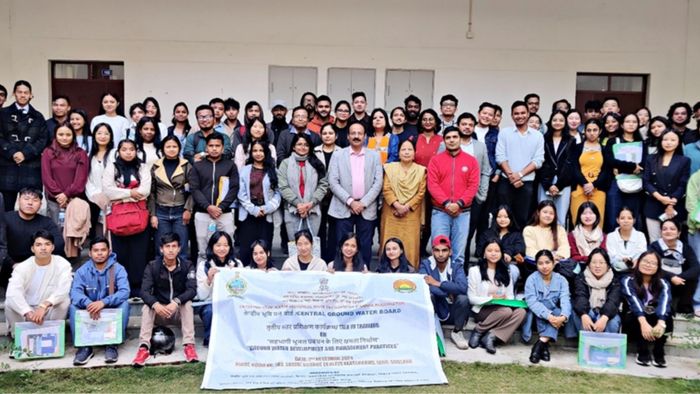Meghalaya: Groundwater conservation training at NEHU stresses urgent need for sustainable practices
A training at NEHU emphasized the urgency of groundwater conservation. Experts discussed strategies and community involvement for sustainable practices.

- Nov 03, 2024,
- Updated Nov 03, 2024, 8:19 AM IST
A Tier-III training programme on “Ground Water Development and Management Practices,” organised by the Central Ground Water Board (CGWB) State Unit Office in Shillong, gathered experts and stakeholders at North-Eastern Hill University (NEHU) on November 2, emphasising the urgency of sustainable groundwater management.
D Rabha, Scientist-D and Head of CGWB’s Shillong unit, opened the programme, stressing the need for grassroots involvement in water conservation. She explained the three-tier structure of CGWB's training—National, State, and Grassroots levels—emphasising that local stakeholders play a critical role in protecting groundwater, a relatively cleaner but limited resource compared to surface water.
Guest of Honour Dr Ravi Ranjan Kumar, from NEHU, acknowledged the importance of groundwater in India's water-reliant landscape and commended national initiatives like the ‘Jal Shakti Abhiyan’ and ‘Pradhan Mantri Krishi Sinchayee Yojana’ aimed at recharge and rainwater harvesting efforts. He noted that the programme could help bridge knowledge gaps and empower participants with essential skills.
Prof Devesh Walia, Dean of the School of Human and Environmental Sciences, spoke on the rising seasonal water scarcity in Meghalaya, a challenge intensified by pollution risks to surface water. He highlighted the need for collaborative action in groundwater conservation, expressing NEHU's gratitude for CGWB's support in bringing stakeholders together for shared learning.
The event included technical sessions on hydrogeology fundamentals, groundwater quality, and rainwater harvesting methods, with field visits to sites such as a monitoring station at Golf Link and a rainwater harvesting site at Mawdiangdiang.
Nathanael Newmai was recognised for his exemplary rainwater harvesting system, showcasing how individual initiatives contribute to environmental stewardship.